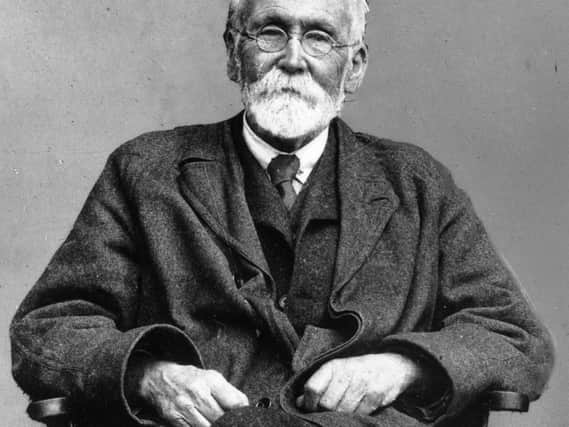York "must confront uncomfortable truths" after review into Rowntree Company sparked by Black Lives Matter protests exposes slavery links and racial injustices


The review, which was commissioned in the wake of last year’s Black Lives Matter protests, has shown the Rowntree Company may have benefitted from cocoa products made by enslaved people, and also from a form of slavery known as colonial indenture in the late 19th and early 20th century.
This saw thousands of people from India and Southeast Asia recruited to work on plantations in Caribbean and West Africa where they worked unpaid until they had “worked off” the cost of their transportation.
Advertisement
Hide AdAdvertisement
Hide AdFour charities and trusts that still bear the name of Joseph Rowntree, who set up the company, united earlier this week to express they were “appalled” at the review’s findings, and have committed to further research as well as apologising on behalf of their predecessors.
They have also acknowledged that some parts of the injustices were known within the organisations and that not enough attention has been paid to this element of the Rowntree story.
The review, by the Rowntree Society, said: “Although what is known has not been actively ‘hidden’, it has not formed part of the public presentation of Rowntree history.”
There is no suggestion that Joseph Rowntree himself was aware or complicit in the historic practises, but, the review states that “it is clear that we need to confront uncomfortable questions about the Rowntree family and company’s participation in colonialism and racialised exploitative working practices.”
Advertisement
Hide AdAdvertisement
Hide AdCatherine Oakley, Executive Director of the Rowntree Society said: "Some parts of these wide-ranging histories have already been covered in academic research, others less so. On one level, it has been known that the Rowntree company operated during the period of colonial era trade, but the details of the company's global operations in Africa and the Caribbean haven't been a part of the established Rowntree story. We've started a process of mapping these colonial contexts across a long historical period ranging from the 1820s to the 1980s, bringing existing sources together, and putting them into new focus."
The review further found in the 1980s, the company’s South African subsidiary abused its black workforce, “including summary dismissal and forced unemployment to suppress unrest” during the period of apartheid.
Coun Darryl Smalley, City of York Council’s executive member for culture, leisure & communities, said: “The Black Lives Matter movement, which has inspired research such as this to take place, has helped to shine a light on the uncomfortable truths and history which as a city we must confront.
“Just as we have a moral obligation to speak out against the injustice we’re witnessing across the world, we also can’t ignore the fact that racism, unfortunately, is not only a part of our history but is still present in our society.”
Advertisement
Hide AdAdvertisement
Hide AdThe Joseph Rowntree Foundation, one of the largest anti-poverty charities in the UK, is offering specialist support to staff from black and other minority ethnic communities in the wake of the review.
A spokesperson for Quakers in Britain said: “Building a true picture of the history and legacies of racial exploitation in Quaker companies is an important part of owning and understanding our own history, and is informing our ongoing work to become an anti-racist church.”
Pressure group CharitySoWhite which campaigns for better representation across the third sector for black and other minority ethnic communities, tweeted: "This is the sort of soul searching and radical honesty that we need to see from every charity, every funder, every philanthropist."